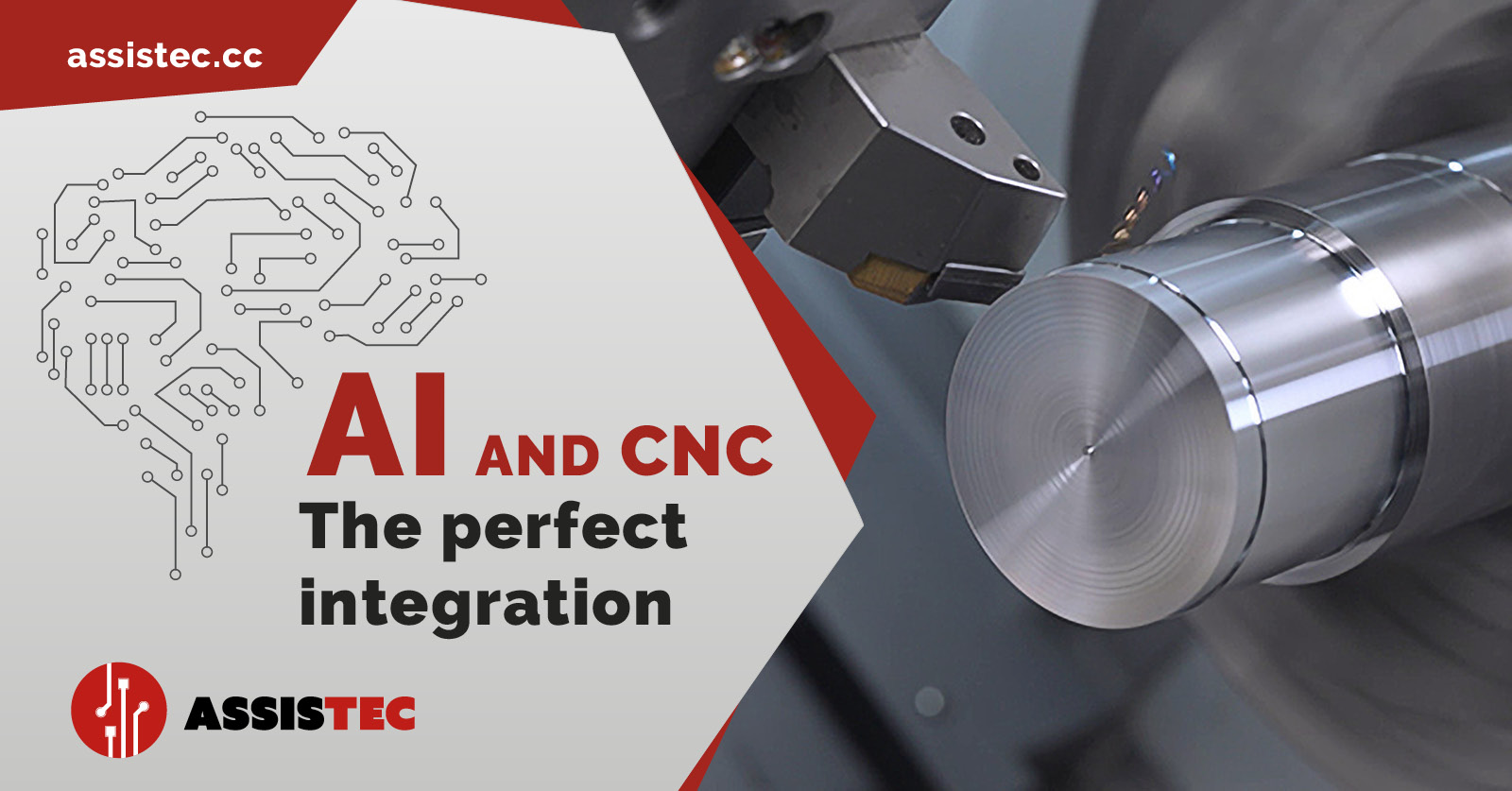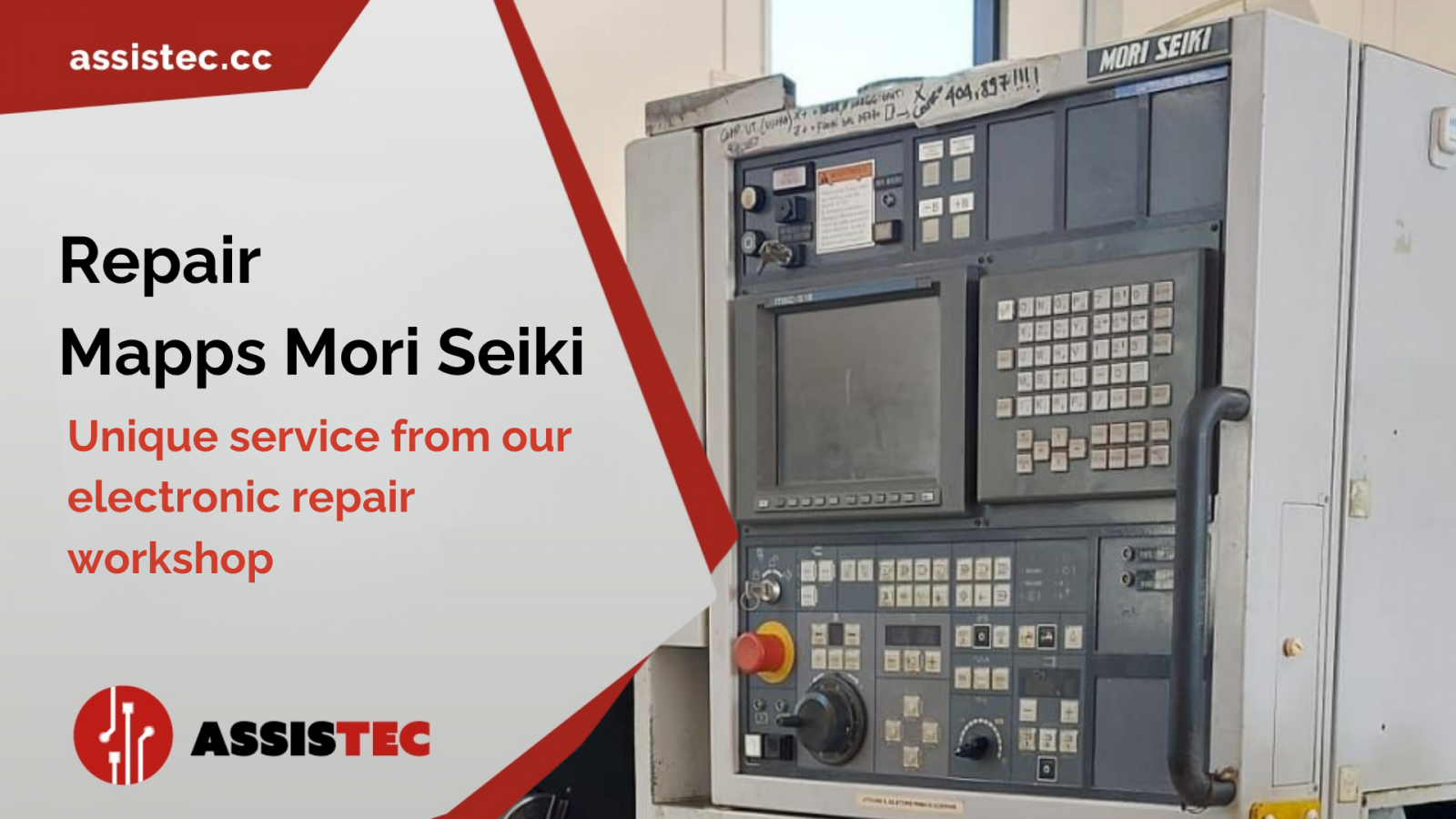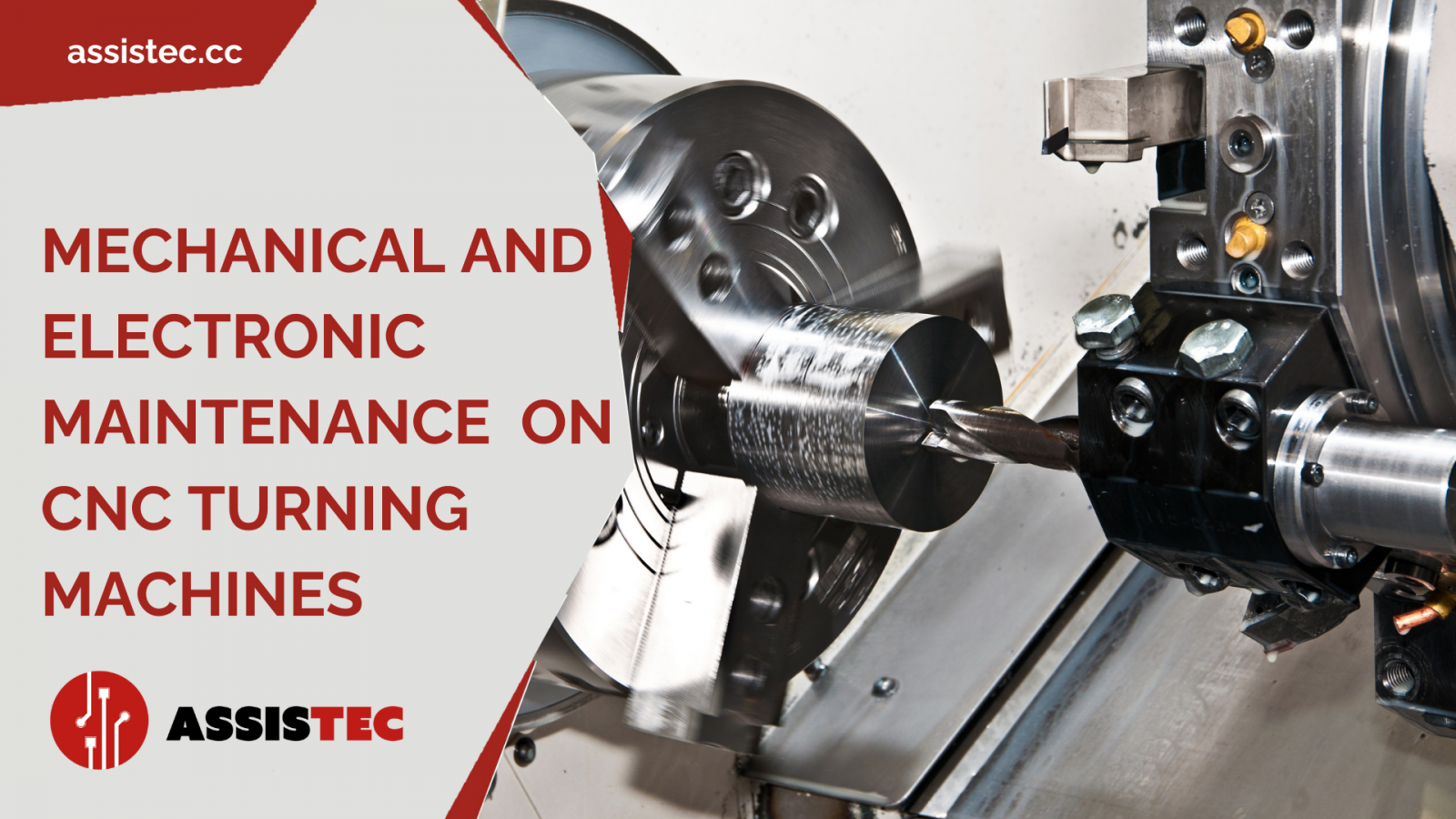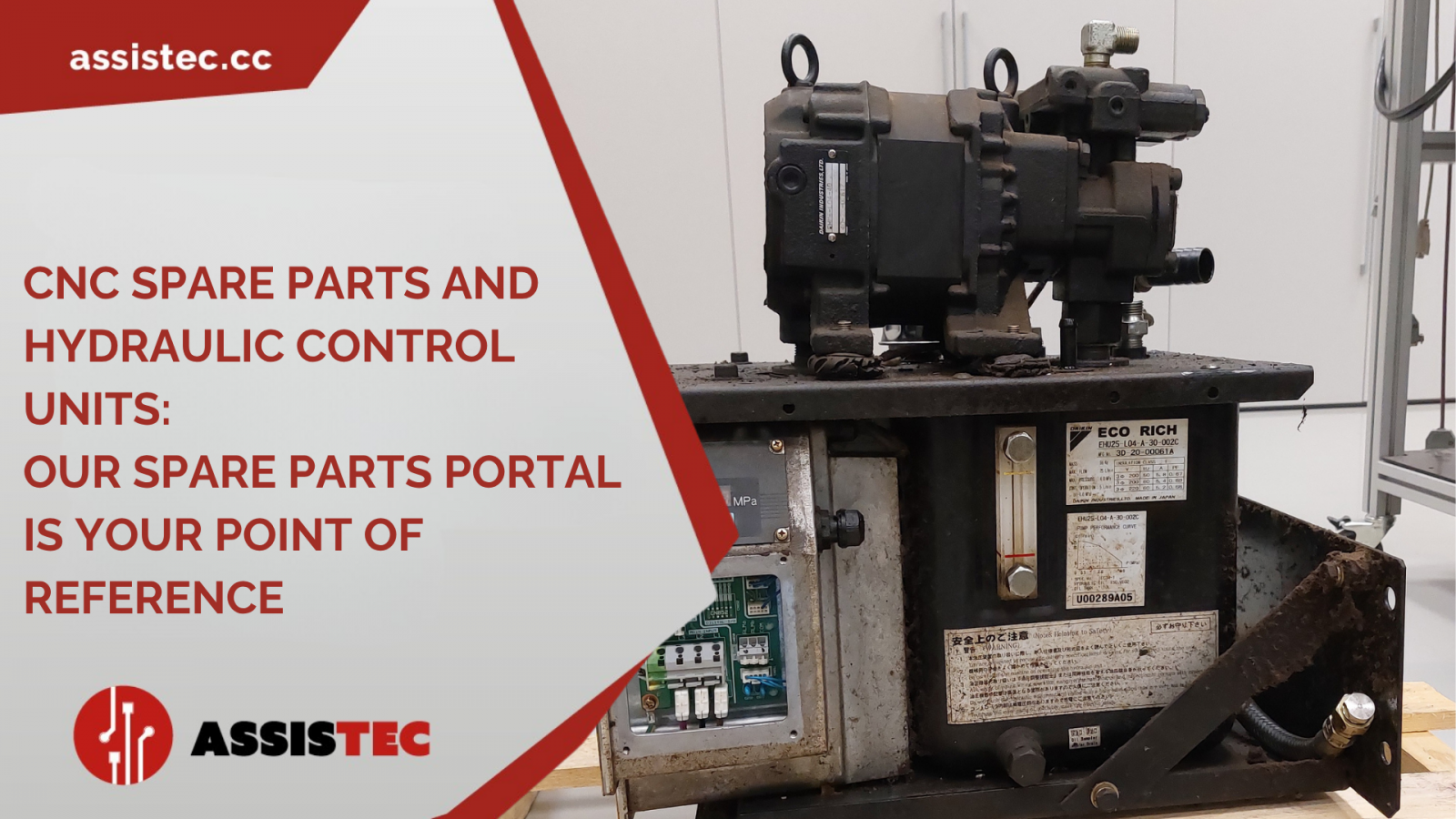The future of CNC machine tools: Artificial Intelligence


AI assisting machine tools
Artificial Intelligence is now here. Similar to the transformative impact electricity had a century ago, AI promises to revolutionise our world. No industry is immune to this epochal change, from food production to manufacturing, up to mechanical engineering and many other industries. Beyond being a widely discussed topic, the advent of Artificial Intelligence is steadily asserting its presence in the labour world. It marks a new step forward for Industry 5.0, raising both legitimate concerns and high hopes for technological enhancements within modern smart factories. The integration of AI with CNC machines, coupled with automated systems such as robots and cobots, holds the potential to significantly improve both production efficiency and workplace safety.
What exactly is Artificial Intelligence (AI)?
It is like human intelligence but without humans. This is how the concept of Artificial Intelligence can be summarised to those who want to know what it is. In more detail, AI is a branch of computer science that focuses on building intelligent machines capable of acquiring and processing information at a very high speed. Unlike traditional computers, these machines possess the ability to learn and interact correctly within the surrounding environment without the need for human intervention. AI is an interdisciplinary science with multiple approaches, where advancements in Machine Learning and Deep Learning have already led to a paradigm shift across every sector of the technological industry and beyond.
Advantages of Artificial Intelligence
It is difficult, if not impossible, to list the advantages or benefits of AI, given its ongoing development that could, therefore, lead to unpredictable outcomes. However, let's attempt to analyse some of the crucial advantages that have emerged recently, particularly for businesses:
- Time and cost savings: a CNC machine tool equipped with Artificial Intelligence never gets tired, nor does it need to rest. Productivity slumps often encountered by human operators at the end of the working day are thus eliminated, relieving them of the most tedious and dangerous tasks. AI can handle repetitive tasks efficiently, automating routine activities to save time, energy and costs.
- More detailed corporate data analysis: the organisation and identification of data play a critical role in modern enterprises. Unfortunately, these activities are time-consuming and complex, requiring significant resources. In this regard, Artificial Intelligence can assist companies in extracting data and processing vast amounts of information in a single instant;
- Error reduction: while not completely error-free, AI is far more accurate than humans. In fact, it can achieve up to 99% accuracy in the tasks it performs;
- Continuous support: unlike human operators, AI operates 24/7 and can, therefore, assist customers regardless of the time of day in which the request arrives;
- Improved customer experience: in an era where direct customer interaction is increasingly important, AI can analyse user behaviour to ensure that the products or services offered align with their needs. This facilitates personalised and relevant customer experiences.
Increasingly reliable CNC Machine Tools with FANUC
It is hard to talk about CNC machine tools without mentioning FANUC, a Japanese company that specialises in automation and services such as robotics and computerised numerical controls. To date, FANUC has produced 5 million machine tools for 109 countries globally, making it a leader in the industry. In terms of Artificial Intelligence, this Japanese giant stands out from its competitors by integrating a diverse range of advantageous features into CNC machine tools, making them even more reliable and user-friendly. These advantages increase the efficiency of processes, save time and resources, elevate machining quality and introduce a smart approach to condition monitoring and KPI compliance.
Some new AI-driven functionalities, such as the Servo Learning Oscillation chip breaker, Orbit Cut enabling synchronous control of spindle rotation and interpolated circular movement of X and Y axes on machining centres, Tool Posture Turning to resolve vibration issues, and AI Servo Tuning for faster machine start-up and shorter optimisation times due to the new calibration procedure, reinforce the superiority of FANUC numerical controls as the ideal choice for turning and milling applications.
Assistec can help you propel your company into the future
Artificial Intelligence is already used in over half of Italy's major companies and in many different sectors. As experts in providing mechanical and electronic support for CNC machine tools equipped with FANUC technology, we at Assistec also embrace new AI-driven opportunities. Since 1998, we have been constantly looking to the future, and we recently established a business unit dedicated entirely to developing and installing robotic cells.
Artificial Intelligence represents the future of businesses. Find out how it can be integrated into your company to enhance productivity. For more information, please contact us or call us at +39 0522989436. Visit the website robofeed.it to discover our range of robotic cells.
Recent Posts

-
MAPPS Mori Seiki: cutting-edge technology at the service of CNC programming
In the world of CNC machining, Mori Seiki has always been synonymous with precision, efficiency and innovation. Among the systems that have contributed most to building this reputation, MAPPS (Machine Advanced Programming Production System) occupies a place of absolute importance. This hardware, integrated into Mori Seiki machines (updated in CELOS), allows for intelligent management of every stage of production, from programming to simulation. Today, thanks to the many years of experience of the Assistec laboratory, it is possible to repair MAPPS Mori Seiki, with the certainty of turning to a team of qualified, up-to-date and responsive professionals.
-
CNC lathes are the beating heart of many mechanical workshops and manufacturing companies. However, their ability to guarantee precision, production continuity and impeccable finishes depends on a factor that is often underestimated: maintenance. Regular mechanical and electronic maintenance is not only a technical requirement, but also a business strategy that reduces machine downtime, preserves product quality and extends the life of the equipment. This guide explores all the operations necessary for comprehensive maintenance, with practical advice and guidance on when it is essential to rely on specialised professionals.
-
The efficient management of CNC machine tools cannot be separated from a reliable, timely and well-organised spare parts system. This is where the Assistec Spare Parts Portal comes into play, designed to provide concrete support to workshops, maintenance technicians, technical managers and industrial buyers.
Thanks to direct integration with the automated warehouse, the portal allows you to identify and order new and remanufactured components in just a few clicks, with real availability and fast shipping.
Among the most requested spare parts today are hydraulic control units, which are essential for ensuring the operational continuity of CNC systems



